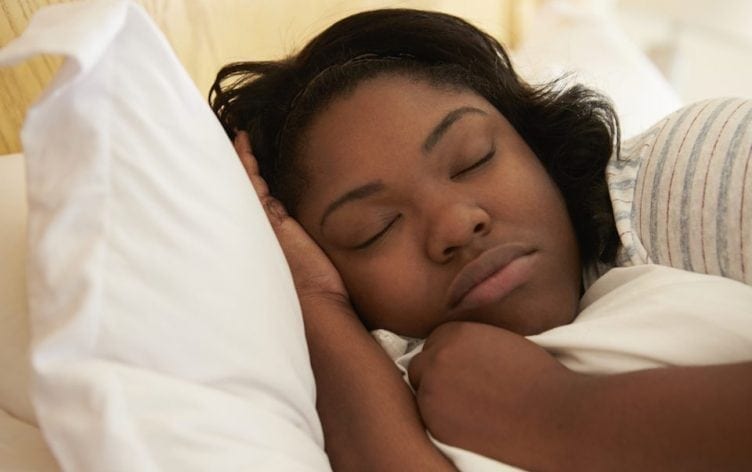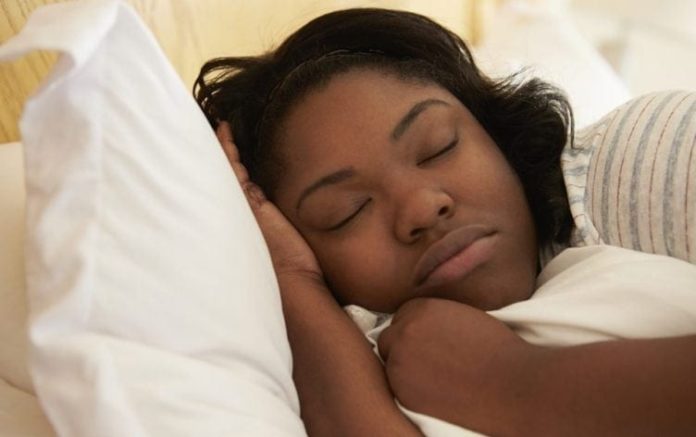
5 Expert Tips for Getting More Quality Sleep (& Why You Need to Make it Happen)
It’s 9:30 p.m. and you just got home from work. You should be in bed by 10:30 p.m. if you want to make your 7:00 a.m. workout. Thing is, you’re wide awake. Plus, there’s a whole new Orange is the New Black season you haven’t gotten around to watching, and you just can’t stop clicking “next.”
Sleep deprivation is the new norm, but according to star functional medicine physician (and Gwyneth’s go-to doc) Dr. Frank Lipman, it affects your health much more deeply than just causing morning meeting drowsiness.
“Your cells repair themselves more rapidly at nighttime,” Dr. Lipman says. “The body produces higher levels of human growth hormone, which promotes cellular renewal, and your digestive system gets a break.” So if you skip it, you skip those crucial processes—and it doesn’t stop there. “Research says that sleep deprivation leads to increases in grehlin, the hunger hormone, and decreases in leptin, the hormone that tells the brain, ‘I’m full,’” Dr. Lipman explains, meaning less sleep equals more overeating. “You’ll also look to sugar, processed carbs, and caffeine to get more energy.”
Exhausted yet? Dr. Lipman recommends the standard eight hours per night, and his number one strategy for making it happen is setting a schedule, a plan he details in August’s Healthiest Year Ever tip.
A regular bedtime will get you into a good-sleep rhythm, he says, and so will these five additional simple tactics you can use to increase your time on the pillow. Yes, it definitely means less Netflix—but also more overall happiness, trust us.
1. Set an electronic sundown “An hour before you go to bed, stop sitting in front of your computer or TV and switch off all other electronic devices,” Dr. Lipman says. “They are too stimulating to the brain and interfere with your sleep.”
2. Keep the room dark This is not good news for city dwellers, but “our bodies need complete darkness for production of melatonin, the important sleep hormone,” he explains. “Cover all the lights of any electronic device and use dark shades or drapes on the windows if they are exposed to light.” If you’ve got one too many local streetlamps, invest in an eye mask.
3. Break up with Starbucks “Caffeine is a powerful stimulant with a typical half-life of seven hours, which means that half of it is still coursing through your veins seven hours later,” he says. Yikes! So you’re not crazy, that late afternoon latte really is keeping you up. “Caffeine blocks sleep neurotransmitters, over stimulates the adrenal glands, and throws off your circadian rhythm.”
4. Cut back on boozing It may seem counter-intuitive considering how sleepy a glass of wine on Friday night makes you, but “in general, those with problems sleeping should avoid alcohol, as it can be as disruptive to the body’s sleep rhythms as caffeine,” Dr. Lipman cautions. “While it has an initial sleep-inducing effect, as the body breaks it down, it can lighten and disrupt sleep by causing frequent and early awakening.”
5. Set the mood Don’t expect to go from full speed to passed out in the blink of an eye. “Turn down the bedroom lights an hour or so before lights out. Meditate or listen to calming classical music at low volume,” he suggests. “Take the time to slowly ‘power-down’ your mind and body so you can drift happily into the good sleep you deserve.” —Jamie McKillop for Well+Good
For more information, visit www.drfranklipman.com, and check out the Healthiest Year Ever, presented by Athleta.
How much shut eye do you get nightly? Think you need more? Share in the comments below!















